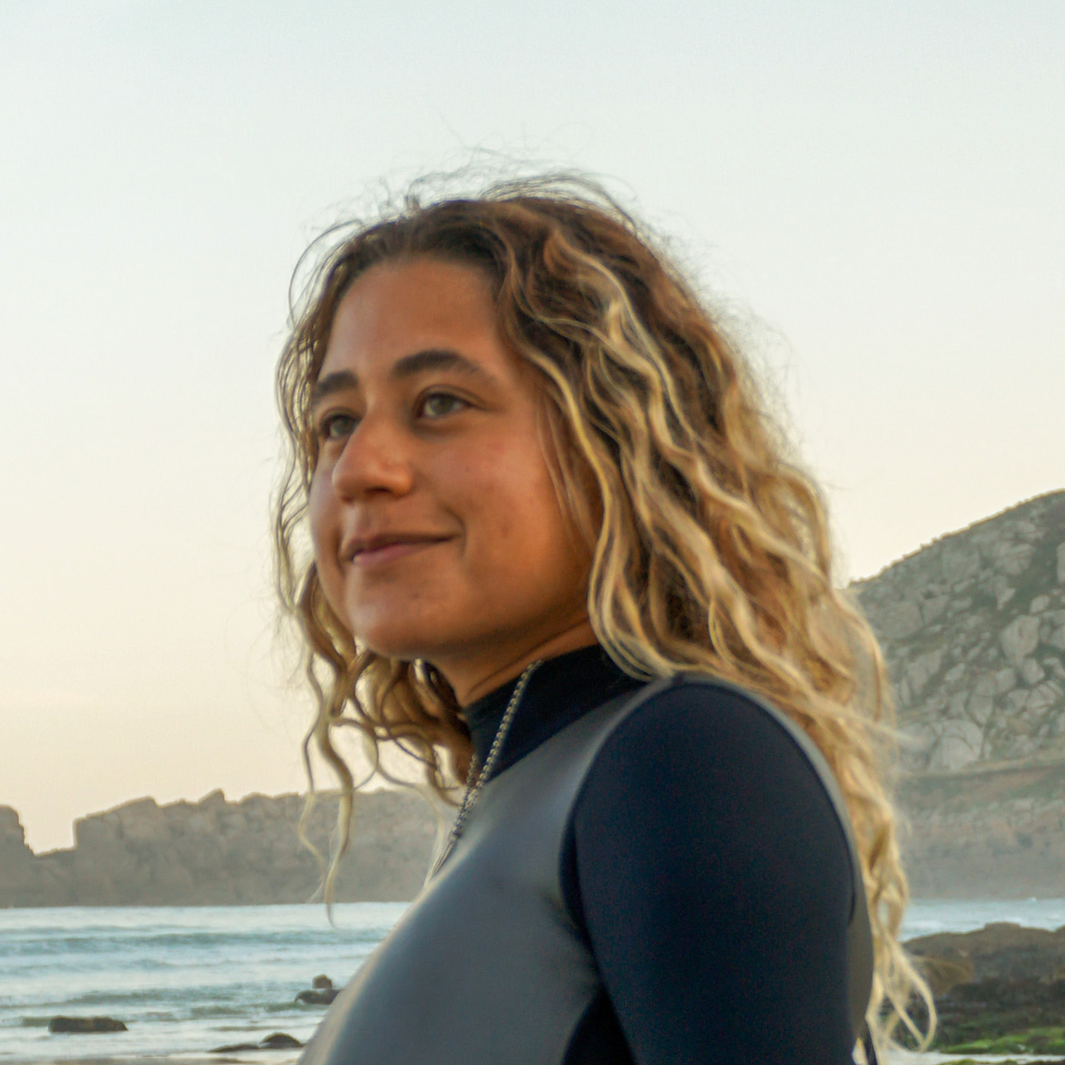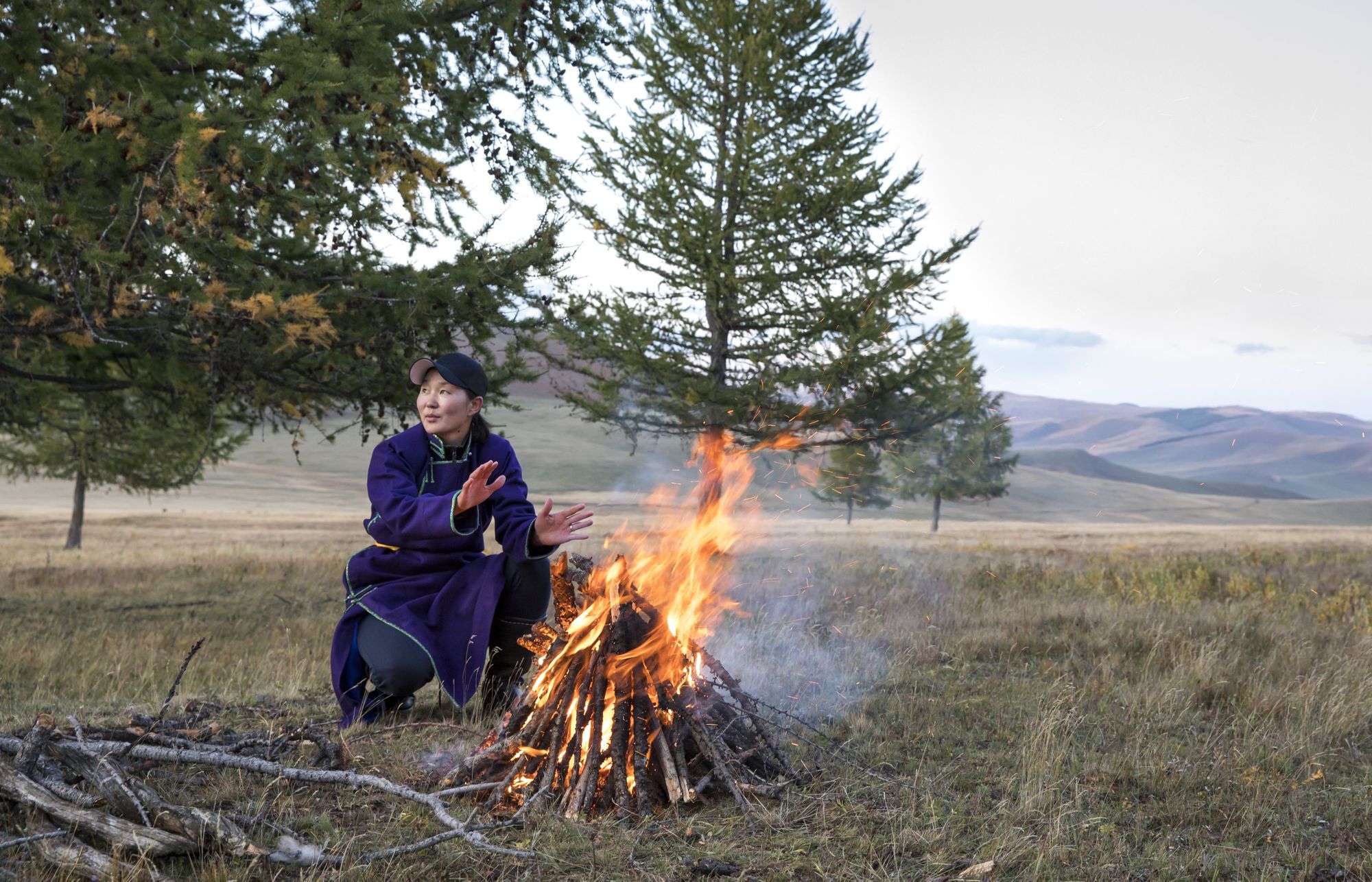The landscapes of Mongolia continue on beyond the colossal plains and the remote, rolling peaks sold in the photographs. The Khazak eagle-hunters do still exist, living in mountainous Western Mongolia and working with golden eagles to hunt their prey through the bleak winter, and the nomad way of life does still continue, though the word ‘nomad’ is of western conjuring. Those involved refer to themselves as ‘herders’, and live in Mongolian 'gers', not 'yurts'.
The stretching, rugged scenery of Mongolia is almost ubiquitously jaw-dropping, but in truth, it has never been the landscape which defines Mongolia, but rather the way that its people exist within it. This fact rings true to the modern day, where from the bustling capital city of Ulaanbaatar, social enterprise Eternal Landscapes are using tourism to empower women - by training them as guides.
It's really beneficial professionally and financially. Female workers can collaborate and help each other when we work in a team. We can also learn from our international female guests. It helps make Mongolian women stronger.
Of course, not all tourism is born equal, and too often Mongolia is still sold as a place where “little has changed since Ghengis Khan” (known locally as Chinggis Khaan). That cliché belies the existence of Ulaanbaatar, a city which sits 45 miles west of the 131ft stainless-steel statue of Chinggis, on the banks of the Tuul River. Ulaanbaatar is home to 1.4m people, almost half the population of Mongolia.
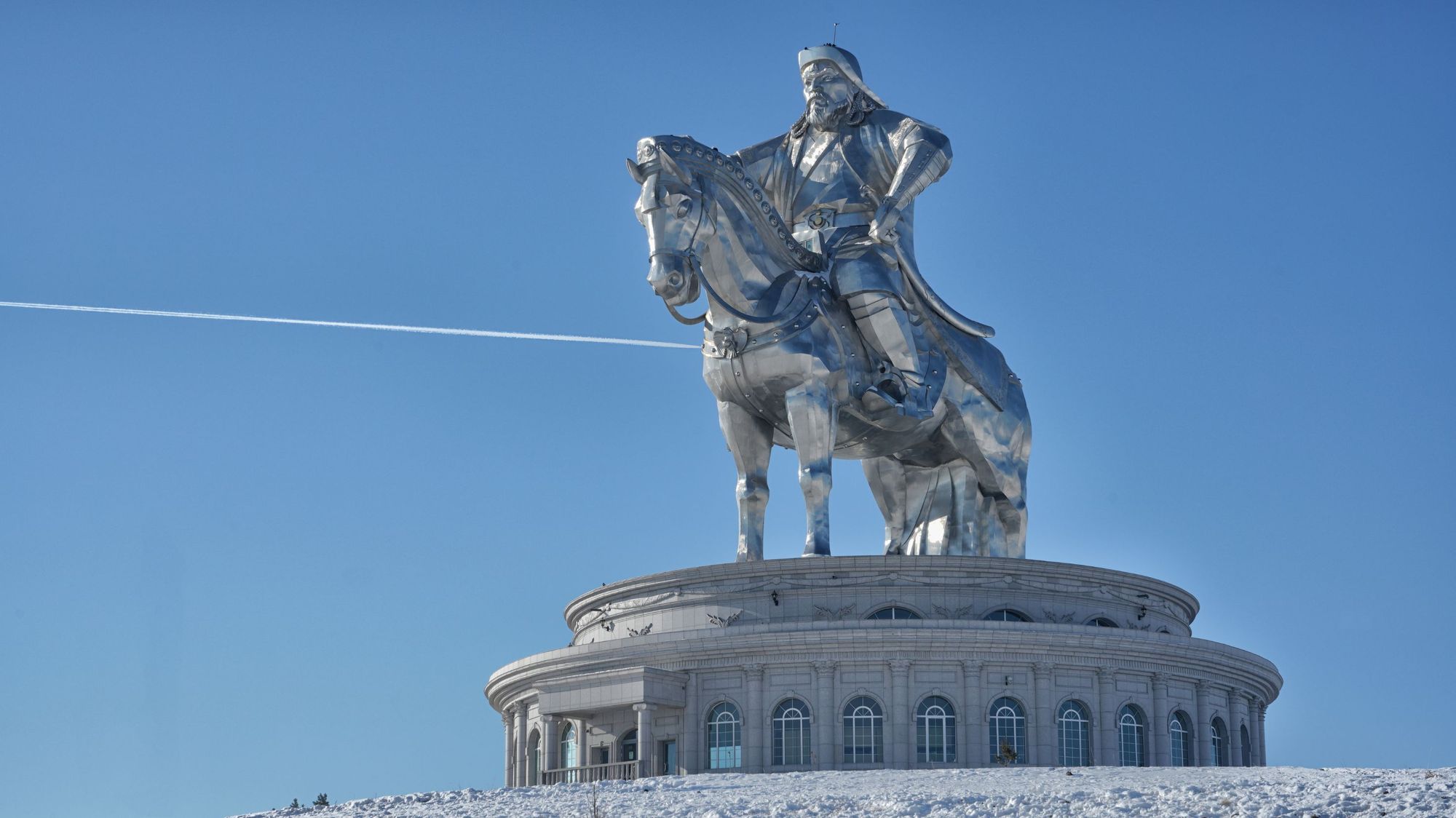
Until the 1990s and the fall of the Soviet Union, the central Sukhbaatar Square was home to a statue of Lenin which has now been pulled down, put in the garden of a five-star hotel, and replaced by a Louis Vuitton store. The high rises of the city fade into expansive rolling hills crowded with the gers of herders. All of which should give you an idea of the contrast in the modern culture.
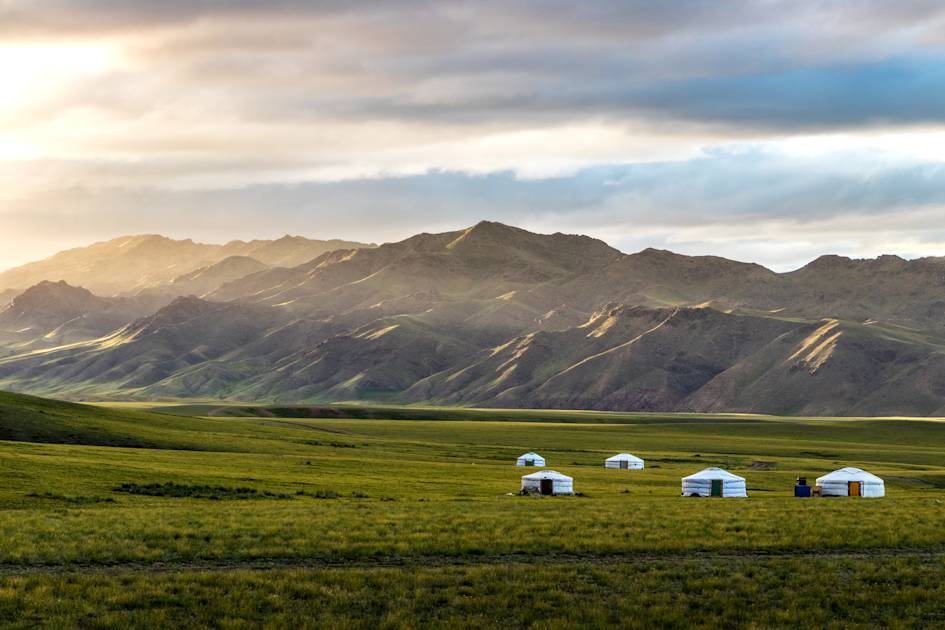
Mongolia’s huge, unexplored reserves of coal, copper, gold and more have transformed the country’s capital, and the socio-economic situation of Mongolia, in the past few decades, and it has been amongst this backdrop that tourism has boomed in Mongolia; for better and for worse.
Jess Brooks set up Eternal Landscapes, along with her business partner Turuu, over 10 years ago. Their aim was to break from the typical tourism stereotypes and clichés used to sell Mongolia, and help create a tourism model which actively benefited locals, as opposed to contributing to a standard tourist circuit which concentrated footfall and encouraged inauthentic, commercial 'traditions'.
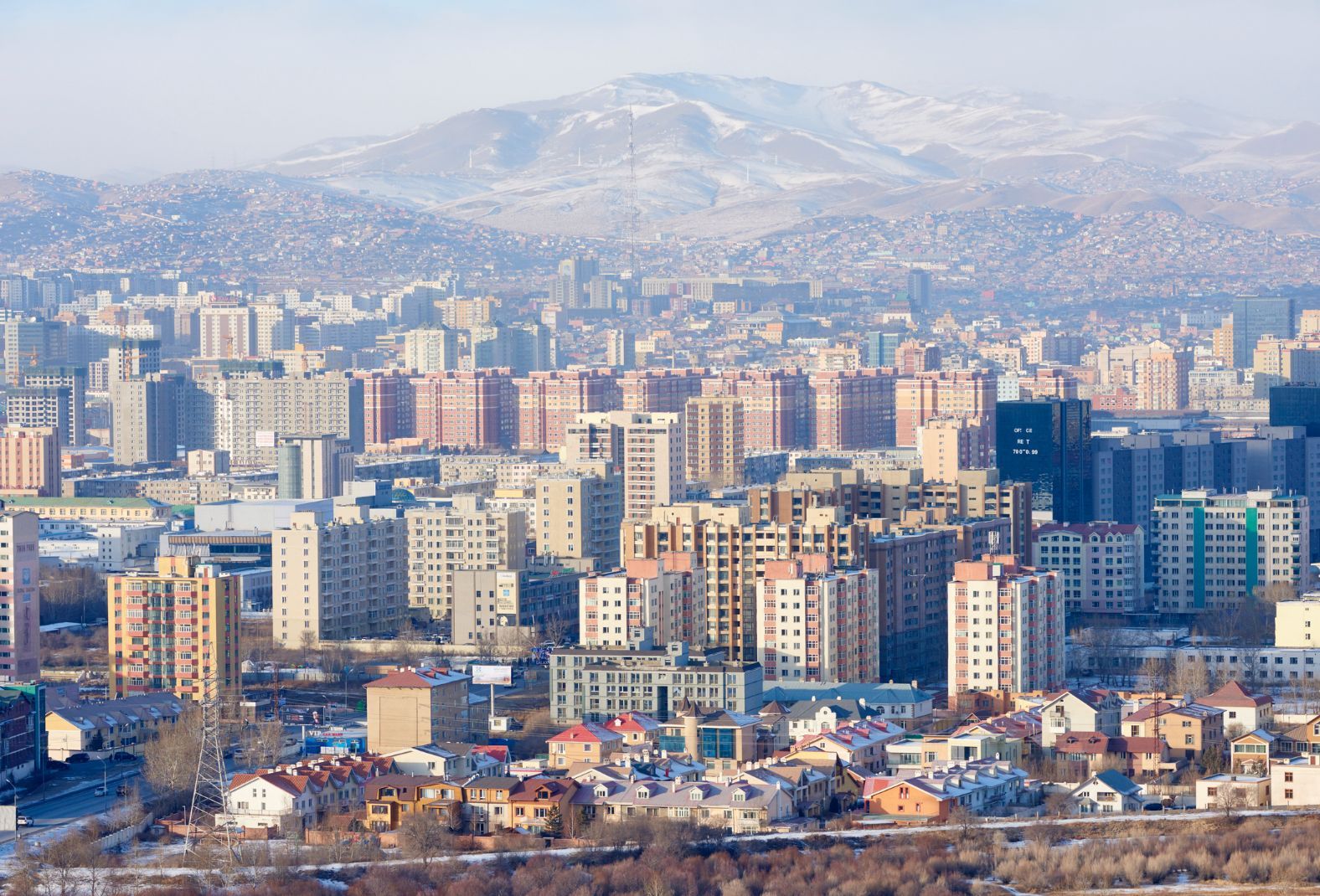
"At the time we started, the only low-season trip being run in Mongolia was dog-sledding, organised by a western company," says Jess. "Mongolians don't dog-sled. It's not part of their culture and it's not who they are. Mongolian dogs aren't bred to pull sleds.”
If a company is flexible and open, it creates great opportunities for Mongolian women - including building financial independence, confidence, skills and a sense of empowerment.
Jess and Turuu set out to create authentic trips to support locals year-round, rather than only during the “high-season”, and took the decision to only employ female trip assistants, in order to improve the job prospects of local women.
"Back when most families were herders, women would have had quite a traditional role," says Jess. "But there are two supports in a Mongolian ger, and that actually represents the stability of the male and the female of the household. So traditionally, women were actually considered equal in partnership to men. We thought, why not do the same with our trips? Let's employ older men, who are typically overlooked by tour companies, but are experienced drivers, and then use our trip assistant positions to create opportunities for women."
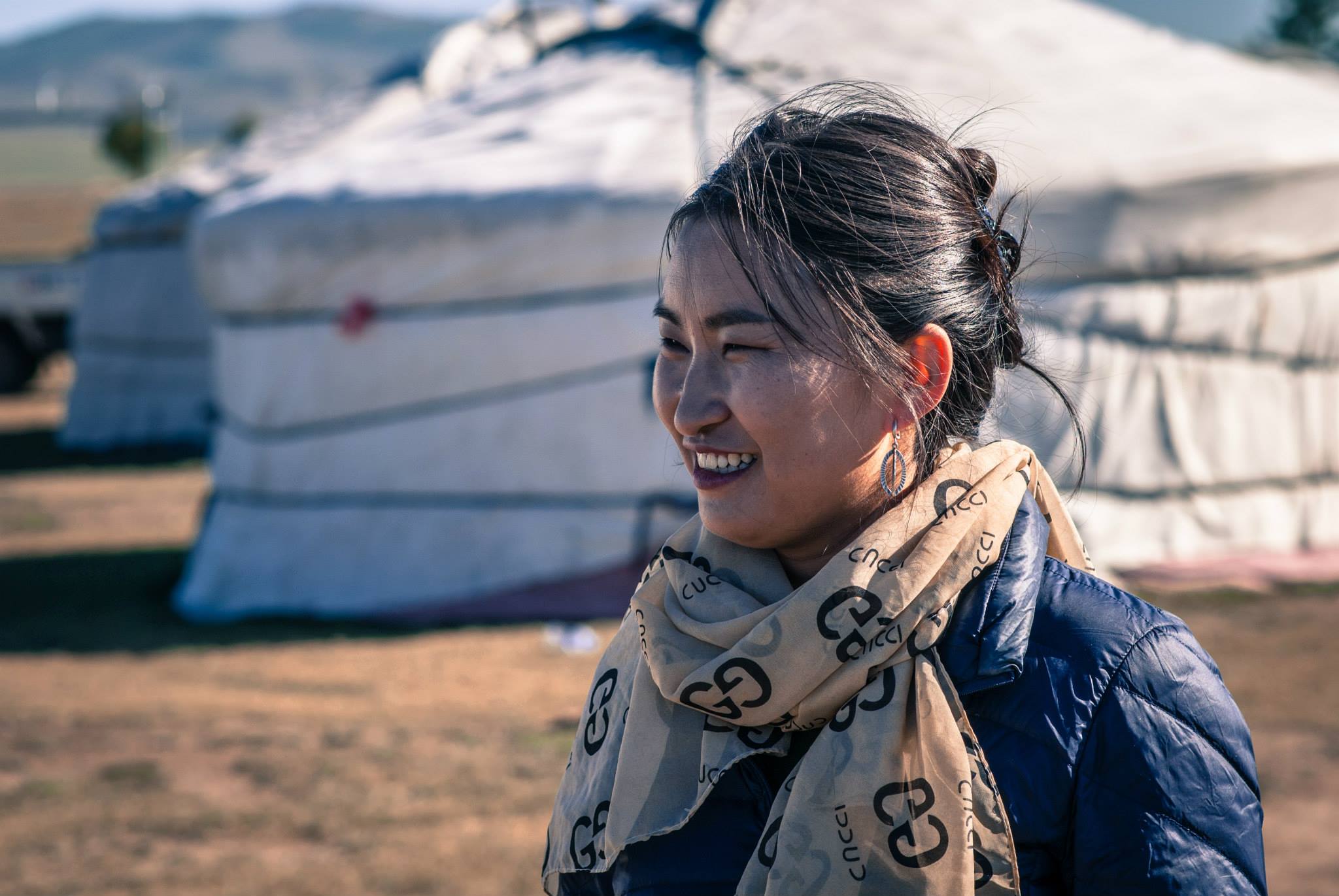
Thanks to its time under Soviet rule, the literacy rate in Mongolia rose to 98%, and today a majority of the students attending university are women. But the fall of the Soviet Union in the 1990s also challenged that gender balance, causing widespread economic deprivation and social inequality.
"When the USSR broke up, although Mongolia became a democracy, it lost everything - all the subsidies, the infrastructure and a lot of the work,” Jess says. “That put the traditional family unit under extreme stress. Suddenly everybody was unemployed, and from that you get alcohol abuse and you get domestic abuse, and the equality of male and female started to change.
“Now though, we're getting more stability back in the country. There are still major issues, especially in Ulaanbaatar, but women in Mongolia are being given freedom again. Not just by society but by their families, and you're getting this generation of younger women who now have older role models.
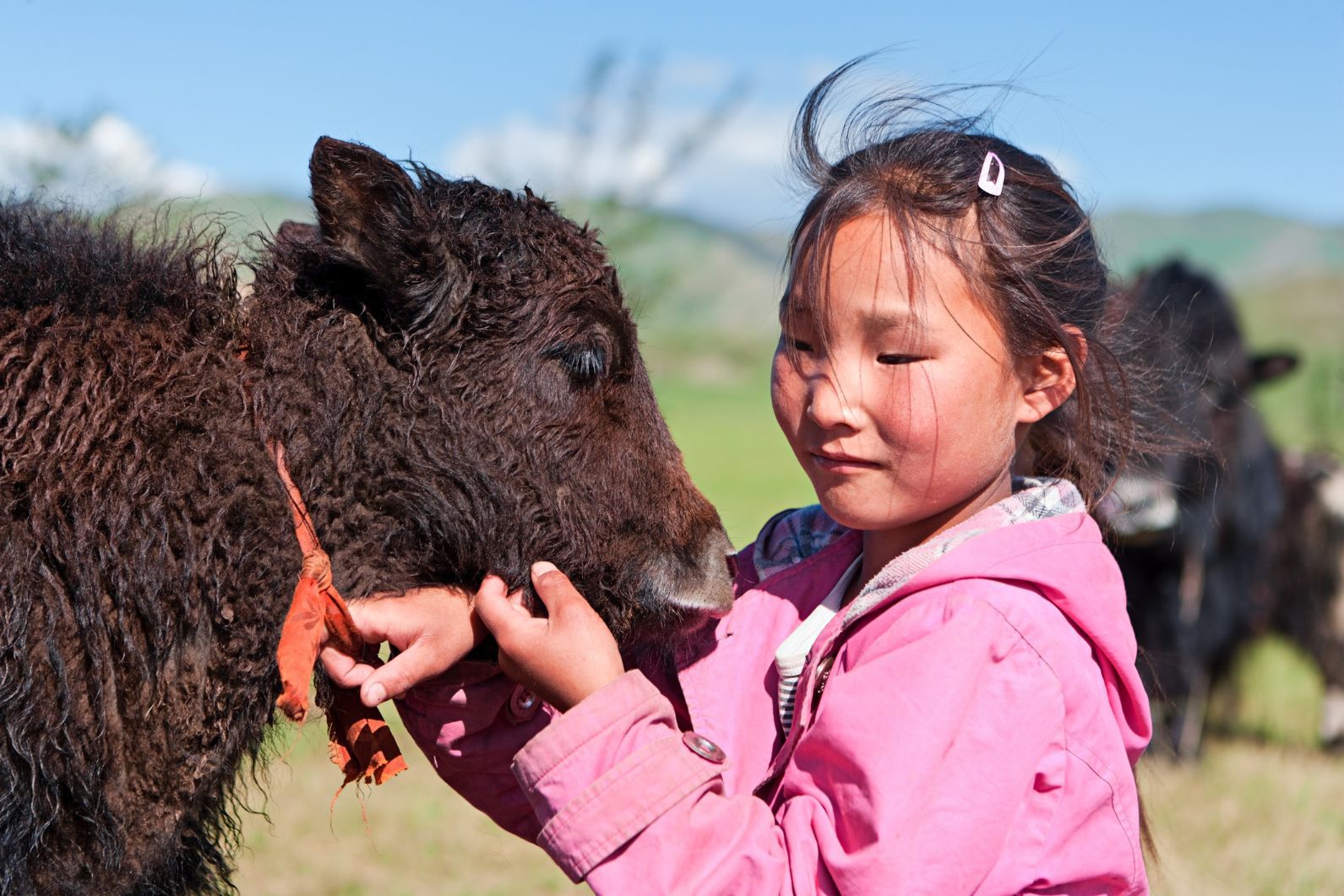
“If women have the support they need, they can branch out, and there's nothing really stopping a woman from working in tourism if that's what she wants to do. Mongolians are very open to change - it's part of their culture.”
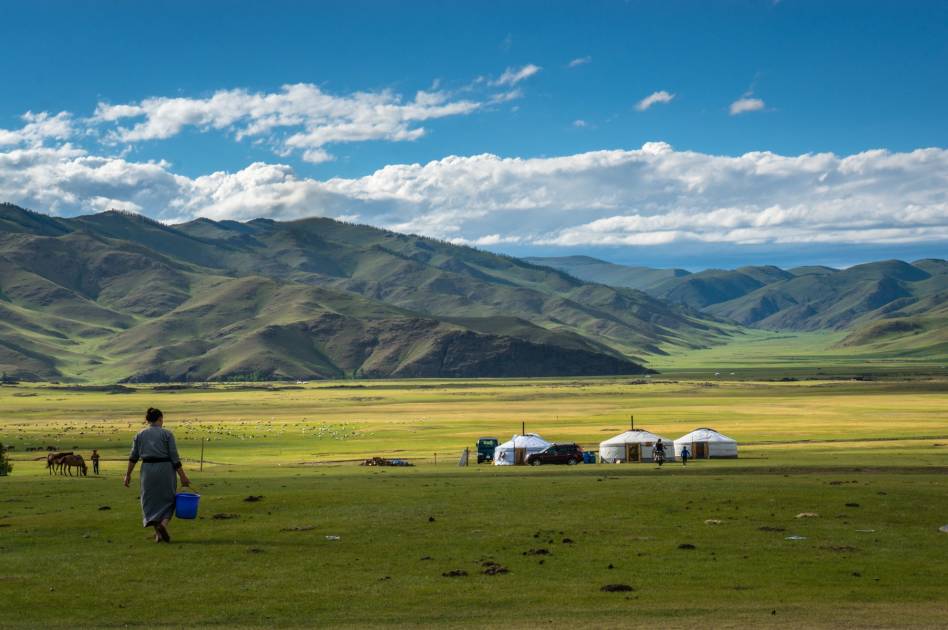
Many of Jess’ trip assistants are also mothers, or work primarily as a teacher but look to earn extra income during holidays. Eternal Landscapes provide extra flexibility throughout their training process in order to accommodate for this, and to keep things as accessible as possible. Dashka is one such local guide.
“As a teacher, it is tough to find a part-time job here in Mongolia,” she says. “We have a long summer holiday in education, and Eternal Landscapes allows me to work as much or as little as I want or need during the holiday.
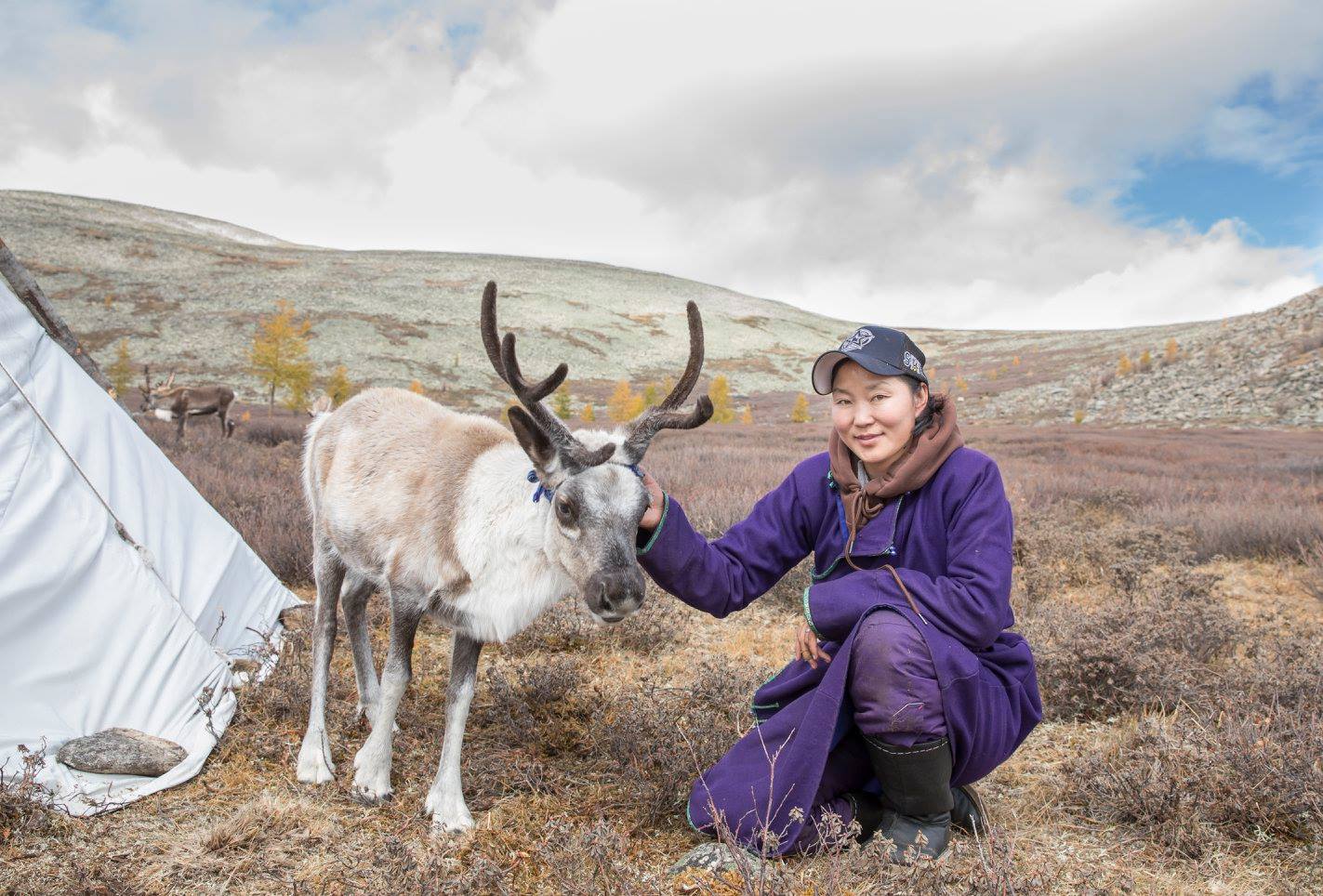
"Personally, it’s really beneficial - professionally and financially. Female workers can collaborate and help each other when we work in a team. We can also learn from international female guests. It helps make Mongolian women stronger.”
Pujee is another guide who has also used the opportunity to develop not only financially security but herself - and has developed a new passion for hiking.
"Previously, I didn't have the confidence, but last year, I climbed Mongolia's highest mountain."
“Working in tourism benefits local women if the company is flexible and supportive - often in Mongolia, our circumstances can change very quickly - and if it pays a sustainable wage,” Pujee says. “If a company is flexible and open, it creates great opportunities for Mongolian women - including building financial independence, confidence, skills and a sense of empowerment.
"I've found my inner person and interests. Working in tourism has helped me find who I am. It’s created a new Pujee - and that Pujee loves to trek! Previously, I didn't have the confidence, but last year, I climbed Mongolia's highest mountain."
While the training programme for Jess’ guides is currently informal, she dreams of being able to set up a more formal, structured school, should funding arise.
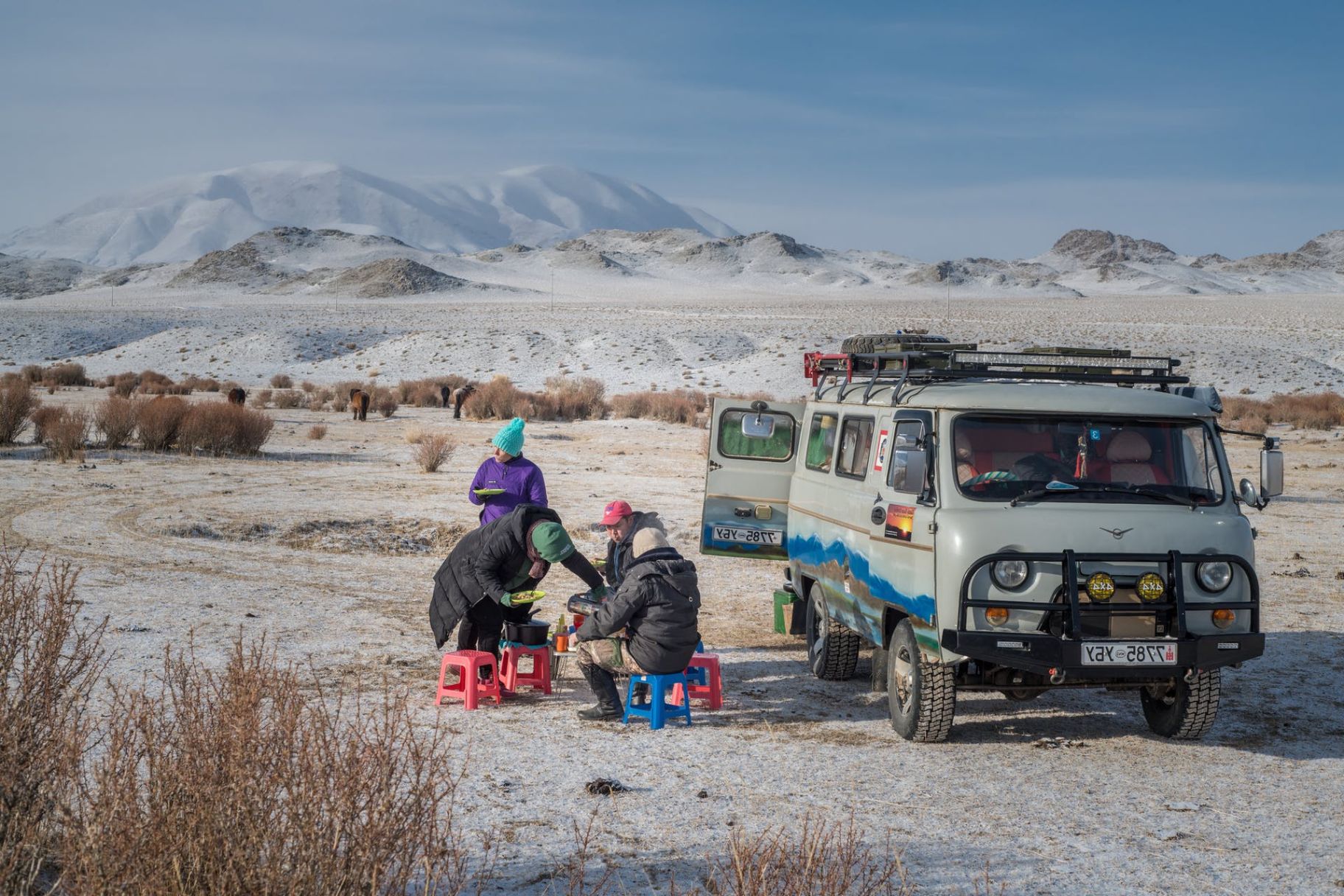
For now, Brooks is excited to continue playing her part in ensuring tourism develops responsibly in Mongolia, and continues to benefit local people. Over a decade since she first arrived in the country, she says, it still leaves her in awe.
“I love swimming and I swim all year round,” laughs Jess. “Of course, Mongolia is landlocked, but when you sit next to the sea and you look out, especially on a stormy day, you see this seascape - and there's this power to it, and the size of it. To me, Mongolia’s landscapes are like that. It's the sheer immensity of it, and then watching how people here make their lives within these remarkable landscapes, and the diversity of the way of life, and their sense of strength and self and their openness to change and adaptation - it's a very special place.”
It has never been the landscape which defines Mongolia, but rather the way that people exist within it. Perhaps this modern generation of female guides will inspire many more, and uplift and empower local women for years to come.
Inspired? Check out our new adventures in Mongolia and contribute to responsible tourism, empowering and inspiring local female guides.

